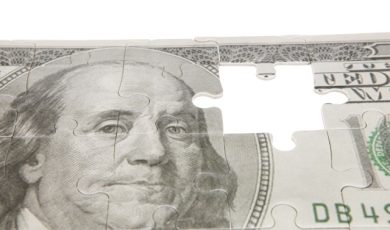BATON ROUGE, La. – Louisiana stakeholders provided mixed testimony on the possibility of legalizing online casinos in the first study committee hearing held by the Senate.
Wednesday’s hearing resulted from a resolution introduced by Sen. Kirk Talbot at the end of last session to explore the issue.
“Internet gaming has proliferated around this country,” Talbot said. “There’s a lot of illegal offshore internet gaming that I guess has been around for a while.”
I know several states have legalized internet gaming, cracked down on illegal gaming, and it’s generated an enormous amount of tax dollars. And it seems like this thing just keeps growing and growing.
Sen. Kirk Talbot, in a Louisiana Senate study committee hearing
“So I did this resolution just so we could kind of get a little idea in this committee and see how this whole thing works.”
It was the first of several study committee hearings the Louisiana Senate intends to hold on iCasino over the next several months.
The Senate Judiciary B and Revenue and Fiscal Affairs committees will report their findings to the Louisiana Senate by March 1.
The legislature convenes April 14 for the 2025 session, when Talbot or another senator may introduce the first Louisiana online casino legislation as a result of the study committee.
Proponents explain reasons to regulate online casino
Howard Glaser from game content provider Light & Wonder told committee members that numbers extrapolated from an American Gaming Association study show $4.6 billion in illegal online casino gaming takes place in Louisiana today.
“Most if not all of the operators of these games are offshore companies which use Louisiana residents as an ATM to suck revenue out of the state, untaxed and with no protections for the players,” Glaser said. “In addition, there are well-documented cases between illegal online gaming taking place in this state and the money that comes from it and money laundering for human-trafficking, drug-trafficking and organized crime.”
Glaser said reasons states consider regulating online gaming include protecting consumers, combating transnational crime and capturing tax revenue.
To the latter point, he cited a Vixio Regulatory Intelligence study projecting that Louisiana would gross $763 million in online casino revenue. Based on Louisiana’s 15% tax revenue on brick-and-mortar slot machines, that would produce $114 million in recurring annual tax revenue.
West Virginia Del. Shawn Fluharty was in Louisiana in his role as president of the National Council of Legislators from Gaming States (NCLGS), which is holding its winter meeting in New Orleans this week.
Fluharty shared his experiences legislating online casino in West Virginia and best practices recently developed by NCLGS as iGaming model legislation.
He noted that 38 states with legal sports betting produced $3.2 billion in revenue last quarter while only seven states with legal iCasino produced $2.08 billion in revenue.
Sports betting is very popular, it gets good press. iGaming is good policy. It really is bringing in new revenue, it’s shrinking the black market and protecting the consumer.
West Virginia Delegate and NCLGS President Shawn Fluharty, in a Louisiana Senate study committee hearing
Louisiana casino companies testify in support of iCasino
Representatives of Caesars Entertainment and Boyd Gaming, two brick-and-mortar casino companies operating in Louisiana, told the committee they viewed online casinos as an additive to their properties.
Trevor Hayes provided data from Caesars experiences in New Jersey. Consumers who play online and visit casinos make 25% more trips to the physical casino than customers who only visit the casino.
Hayes pointed out the investments Caesars has made into its three physical gaming properties in Louisiana recently, including $430 million to upgrade Caesars New Orleans.
“I don’t think any gaming company and I don’t know what other industry has invested almost $700 million in the state in the past three or four years,” Hayes said. “We wouldn’t follow that investment up by saying please do this other thing which is going to hurt that investment we just made into this state. We do not believe it is something that is going to be detrimental to the brick-and-mortar casinos.”
Boyd Gaming has five gaming properties in Louisiana. It currently operates iGaming only in Pennsylvania, but hopes to in Louisiana soon.
“Our experience in New Jersey and Pennsylvania has shown that iGaming complements the brick-and-mortar business by engaging a new and different type of customer,” Ashley Menou Center said. “We believe Louisiana would also see positive results if land-based casinos were authorized to offer iGaming here.”
Melissa Darden, chairman of the Chitimacha Tribe of Louisiana, said her tribe welcomed iGaming and the economic opportunities it would provide for the tribe and Louisiana citizens.
“I know you’re weighing a variety of factors and uncertainties when it comes to iGaming,” Darden said. “We are too. What I do know is that by engaging in iGaming, the tribe will extend into the next generation our longstanding tradition of contributing to Louisiana’s economy.”
Four influential opponents state case against iGaming
Representatives of Cordish Cos., distributed gaming, charitable gaming and a religious organization expressed opposition to Louisiana moving forward with online casino.
Cordish is investing $700 million into building Live! Casino Louisiana, which will open just outside Shreveport in February.
Mark Stewart of Cordish said cannibalization by iGaming is real, social costs are severe, and tax revenue projections don’t account for the hit to existing gaming and cost of increased addiction.
“We submit that bringing iGaming to Louisiana would pull the rug out from under these projects and discourage additional land-based investment,” Stewart said. “… Really, it’s common sense. iGaming means less foot traffic to casinos, less foot traffic means less revenue, less revenue means less reinvestment.”
Alton Ashy spoke for the Louisiana Video Gaming Association, the video poker industry in the state. It’s another large gaming player in Louisiana with 1,400 locations.
“There is nothing we’re more adamantly opposed to than online or internet gaming,” Ashy said. “We see absolutely no benefit to the state. We do agree that there is a lot of money at stake, and with online gaming it will be sucked out of the state every day just like it is in sports betting.”
Ruth Collins, president of the Louisiana Association of Charities, represents close to 400 charities that operate bingo in the state.
“How can we turn our backs on almost 400 charities running bingo if we approve this?,” Collins said. “We are against it. I’m telling you right now, it’s going to hurt the charities.”
Kathleen Benfield from the Louisiana Family Forum contended that lawmakers don’t legalize other harmful behaviors to eliminate an illegal market and shouldn’t do that here.
Pointing out inconsistencies of opponents
Representing Fanatics and the Sports Betting Alliance, former Michigan Rep. Brandt Iden countered the cannibalization claims made by Cordish.
He said that the mayor of Detroit told him that online gaming revenue saved the city when the pandemic dried up other sources of revenue.
“When the pandemic hit the city the hardest, iGaming was there,” Iden said. “And that is a very moving statement from a city that had a very tumultuous time.”
John Pappas, representing the trade association iDEA, pointed out that some of the data used by Cordish to show brick-and-mortar gaming declines in states with iGaming didn’t account for effects of the pandemic.
He also called out the hypocrisy of Cordish opposing iGaming in Louisiana while offering it in Pennsylvania. He highlighted language on Cordish’s Pennsylvania online casino website calling it “the hottest action in the palm of your hand.”
To counter Ashy, Pappas noted that a recent study conducted by Spectrum Gaming for the Wyoming Gaming Commission found no erosion of the VGT market in West Virginia, a fairly close comparison to Wyoming and Louisiana in terms of video gaming.
Some Louisiana legislators express iGaming concerns
Senate Judiciary B Chairman Mike Reese led the hearing and seemed open to the iGaming discussion. However, some committee members expressed concerns regarding Louisiana online casinos.
Sen. Beth Mizell has strong concerns about problem gambling and the family impact of having online gaming available in her living room.
“A lot of what we see as detrimental behaviors of society that contribute to breakdown of family, we’re trying to find ways to legalize and control it,” Mizell said. “I just think it’s an expansion. Why would we want to condone something?”
Fluharty told her he could pull up an iGaming app in her living room today, one unregulated by the state.
Sen. Adam Bass, whose district will house Live! Casino Louisiana, asked about a rise in problem gambling cases in jurisdictions with legal iGaming. Sen. Joseph Bouie asked about how operators ensure the integrity of online games.
Sen. Sam Jenkins expressed concern that the legislature doesn’t do harm to the existing Louisiana gaming industry. From the contradicting testimony, he said that was something the committee would have to look at further.
“From sitting here today, some facilities in the area support it and some do not support it,” Jenkins said. “We’ll try to think it through the best we can.”








